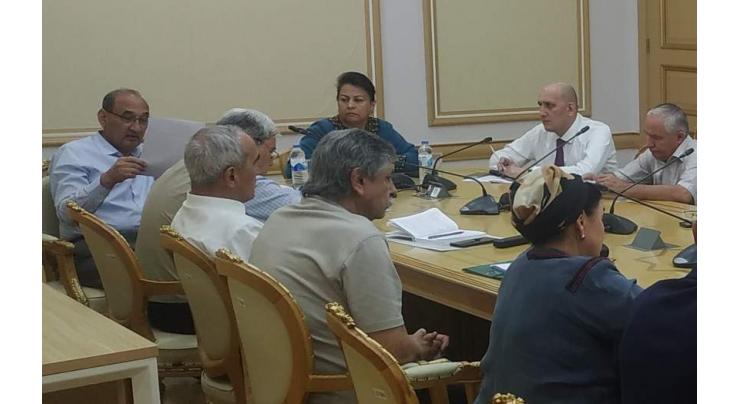Pakistan kicks off National State of Environment Report with a collaborative workshop
Ms. Aisha Moriani says we need baseline indicators & capacity-building efforts to implement our environmental policies effectively
ISLAMABAD ( WEB NEWS )
Pakistan in a significant step toward addressing its environmental challenges with the launch of the National State of the Environment Report (NSoER) at an inception workshop, held on Thursday in collaboration with the Ministry of Climate Change and Environmental Coordination, United Nations Environment Programme (UNEP), and the Sustainable Development Policy Institute (SDPI).
In her keynote address, Ms. Aisha Moriani, Secretary of the Ministry of Climate Change and Environmental Coordination, expressed her appreciation for SDPI’s pivotal role in shaping the NSoER and thanked UNEP for providing a methodology to guide the report’s development.
She emphasised the importance of involving stakeholders such as non-governmental organizations (NGOs) and urged for the presentation of the final report to the cabinet, stressing that evidence-based data is crucial for informed policy decisions.
“We need baseline indicators and capacity-building efforts to effectively implement our environmental policies,” she stated, also calling for the integration of GIS and remote sensing data in the process.
Dr. Abid Qaiyum Suleri, Executive Director, SDPI in his welcome remarks highlighted the significance of evidence-based data in shaping Pakistan’s environmental strategies, noting that the first NSoER was also developed by SDPI in collaboration with UNEP in 2007. “With advancements in AI and software, data has become more accessible, enabling us to better shape Pakistan’s Nationally Determined Contributions (NDCs),” he said.
Ms. Zainab Naeem, Associate Research Fellow and Head of Ecological Sustainability and Circular Economy at SDPI, provided an in-depth technical session on the 2016 NSoER and outlined the critical components of the report, including assessments on air, water, land, and climate change. She stressed the need to address policy gaps, with a particular focus on biodiversity, disaster risk reduction, digital environmental monitoring, green financing, and carbon markets.
International experts from UNEP, including Caroline Kaimuru, GEO Coordination Consultant, and Sandor Frigyik, Programme Management Officer, led training sessions on the methodologies and frameworks required to create an inclusive, participatory environmental report.
The workshop, which attracted key stakeholders from various sectors, is part of a broader initiative under the UNEP-led “Capacity Development for Inclusive Policy Interface” project, which aims to strengthen countries’ abilities to use environmental data for science-based planning and decision-making. UNEP is committed to empowering countries, including Pakistan, to address the climate, pollution, and nature crises through enhanced environmental data accessibility.
Dr. Khalid Walid, Research Fellow, SDPI, concluded the workshop by emphasizing that the NSoER will serve as a crucial tool in evaluating Pakistan’s environmental progress, guiding policies, and aligning them with international commitments, including the National Adaptation Plan (NAP) and future NDCs.
The report is expected to help identify key environmental risks, track policy effectiveness, and guide resource allocation to strengthen climate resilience across the country, he said.
He added that the Ministry, in partnership with UNEP and SDPI, is committed to ensuring a collaborative approach involving all relevant stakeholders, including provincial governments, sector specialists, and civil society.
“This report is not just about assessment; it’s about action,” said Sahibzada. “It will inform the necessary investments and policy shifts required to ensure a sustainable and resilient future for Pakistan.”
The collaborative efforts outlined in this workshop signal a proactive step towards ensuring that Pakistan meets its environmental and climate-related obligations while fostering sustainable development in the face of growing climate challenges, he emphasised.

